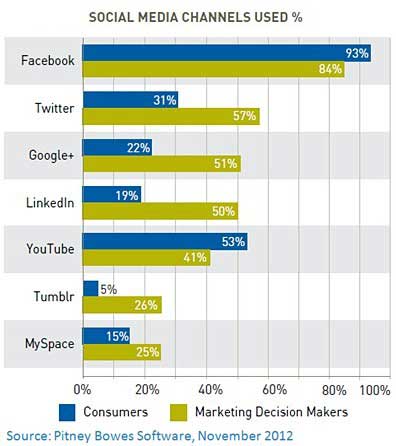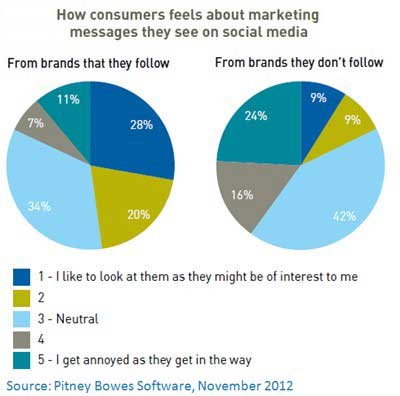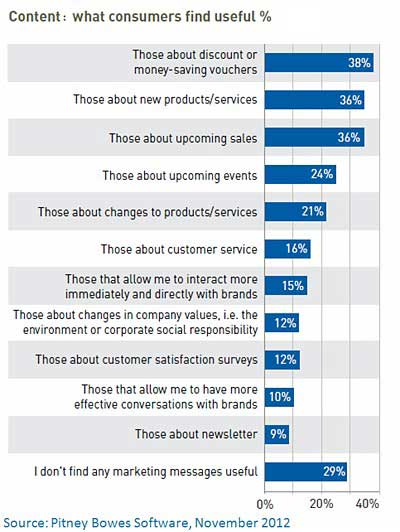Though consumers and marketers are fairly aligned in their focus on Facebook—similar proportions of each segment use the social networking site—marketers tend to be out of synch with their audiences regarding the use of other popular social channels, according to a study by Pitney Bowes Software.
The new study reveals a disconnect between brands' eagerness to market via social media and consumers' attitudes about receiving messages via social channels.
Below, key findings from Pitney Bowes, based on an online survey of 3,000 adult consumers and 300 senior marketing decision-makers across five markets (Australia, France, Germany, the UK, and the US).
Across all markets, Facebook leads in adoption both by consumers and by marketers: 93% of consumers who use social media use Facebook, as do 84% of marketers who use social media for business.
However, marketers tend to be out of synch with their audiences regarding other social channels.
Among marketers who use social media for business and socialy-networked consumers:
- 57% of marketers say they use Twitter, compared with 31% of consumers who do so.
- 51% of marketers use Google+, compared with 21% of consumers.
- 41% of marketers have established a presence on YouTube, even though 53% of consumers use the video-sharing site.

A mere 5% of socially-networked consumers use Tumblr, compared with 26% of marketers.
Value of Being Liked
Social media users are more willing to receive messages from brands they have proactively followed or liked: 48% have a positive attitude toward seeing messages from brands they follow, whereas 18% have a negative attitude.
However, for brands consumers don't follow, the reverse is true: Only 18% of socially-networked consumers have a positive attitude toward communications from those brands, whereas 40% say they would be annoyed to receive such messages:

Spam, Pop-Ups Are the "Worst"
Socially-networked consumers rate "spam" and pop-up ads as their worst experiences of social media marketing (54%).
Moreover, 65% of such consumers say they'd stop using a brand that upset or irritated them via its social media behavior.
Choosing the Right Tactics
There are also misconceptions about the usefulness of social media content:
- 21% of marketers say communications related to corporate responsibility are useful; only 12% of socially-networked consumers agree.
- 24% of marketers say newsletters communications are useful, compared with 9% of consumers who say the same.
- 36% of marketers say content related to customer surveys is useful, but only 12% of consumers agree.
By contrast, socially-networked consumers rank communications about discounts (38%), new products and services (36%), and sales (36%) as most relevant to them:

Power of Word-of-Mouth
More than three-quarters (78%) of social media users say they use social channels to primarily keep in touch with friends and family. Only one-quarter (26%) say they use social media primarily to follow brands.
Given those numbers, it is not surprising that peer recommendations hold more sway.
Among those consumers who had been sent relevant recommendations by friends, 84% said they took some type of action or even made a purchase.
About the data: Findings are based on an online survey of 3,000 adult consumers and 300 senior marketing decision-makers across five markets (Australia, France, Germany, the UK, and the US), conducted in September 2012.



